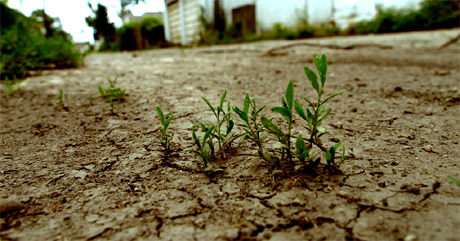Posted July 21, 2008
he opening of the 21st century finds the global working class, social movements, and revolutionary left in disarray. Yet, another world – one freed of exploitation, oppression, war and environmental catastrophe – is possible, and the need to fight for that world is as great as ever. This document attempts to summarize our experiences as members of Solidarity and to draw these lessons into suggestions for today. We lay this on the table and reach out to other anti-capitalist activists, organizers and organizations also desirous of a larger, more powerful grouping committed to revolutionary change. Collective work and analysis is necessary to generalize our experiences and gain a greater understanding of the world we live in. Changing this alienating, dehumanizing profit-driven political and economic system requires an accurate understanding of our world and location of pressure points that can create openings for radical change. Socialists need organization to be effective. Since our founding in 1986, Solidarity has seen itself as an organization devoted to the rebirth of the left in the United States. At that time the U.S. organized socialist left was approaching its low ebb.

In this 40th anniversary of the revolutionary tumult of 1968, it is important to recollect how then the worldwide upsurge spawned a proliferation of socialist organizations and parties, many attached to a particular country of “already existing socialism” (whether China, Cuba, Albania or the USSR). The overriding belief at the time was that the revolutionary process would continue to unfold. There were genuine differences on the left in this era, between radicals who identified with different historical currents (supporters of the USSR, of China, of Trotskyism, of various social-democratic trends), which led to legitimate ideological competition between different organizations. Too often, however, this spilled over into an unfortunate competition even among those who adhered to the same historical perspectives, leading to unnecessary factional warfare and splits.
By the mid-‘80s, it was apparent that this cycle of radicalization had come to an end. At the time of Solidarity’s founding most of the organizations of the New Communist Movement had closed up shop. The feminist and Black liberation movements had ebbed, as had other people of color-led movements, leaving behind a rich legacy of leadership and ideas.
Download a .pdf of the document
Continue Reading…
-
Social Movements over the Last Two Decades
“The re-emergence of the civil rights movement following World War II inspired and propelled forward all of the oppositional and liberation movements of the 1960s and ‘70s…
For draft-age youth in the 1960s opposition to the Vietnam War was a pivotal experience…
While the U.S. immigrant population had been stagnant throughout the 1960s, by 2004 it had risen fourfold (approximately 34.2 million)…
Throughout the 1990s and into the 21st century, campus activists developed networks to coordinate labor solidarity, environmental, antiwar, global justice and anti-racist activism…”
-
Regroupment, Refounding and the Arc of Resistance
“In the decade of our founding, people on the left began talking to each other across ideological lines, in ways that hadn’t happened for a long time – with a common realization that the “party-building” of the previous years had effectively collapsed, and had been abusive in significant ways to the human beings committed to it…”
“The period from 1999 to 2008 has created a new situation for remnants of the U.S. revolutionary left and the new progressive and popular movements…”
“U.S. revolutionaries need to understand how global capitalism is evolving, how that affects the confidence of the working class and social movements, and how those changes reveal new fault lines. We also need to support and participate in working-class and community-based struggles and social movements…”
“A forceful renewal of the socialist left is not entirely a matter of our will alone. It ultimately depends on developments of a more massive scale both here and around the world that in one way or another pose a significant challenge to the capitalist agenda from a left direction…”
